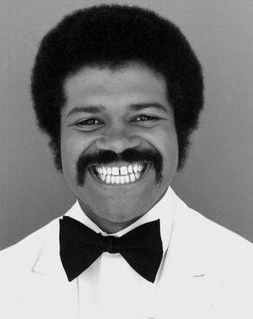A Quote by Ted Lange
Stax was rejoicing in the difference in who we are, and that's what you see in the film.
Quote Topics
Related Quotes
I think it is clear to everyone what happens in the Fifth . The rejoicing is forced, created under threat, as in Boris Godunov . It's as if someone were beating you with a stick and saying, "Your business is rejoicing, your business is rejoicing," and you rise, shaky, and go marching off, muttering, "Our business is rejoicing, our business is rejoicing.
By the time I came to do the final ones [Harry Potter's film], I was working on something that was massively successful. There was a huge difference in indulgence and all sorts of stuff. A very big difference in peoples' attitudes. They were very pleased with themselves. In human terms, it was quite interesting to see the difference.
I think the biggest challenge was being aware of a certain audience that was going to see this film [lone survivor]. There's a big difference from a typical movie, journalists and critics and film goers that go see it find that, that's the general experience you have as a filmmaker. So that just kind of proves my point that there's a really different audience.
In samadhi, in the highest form of meditation, the same thing happens: the mind stops functioning... but you are conscious. That is the only difference, but the difference that makes the difference. One is fully alert, luminous. One is there witnessing, watching, but there is no cloud of thought. The sky is utterly empty: as far as you can see you cannot see any content.




































